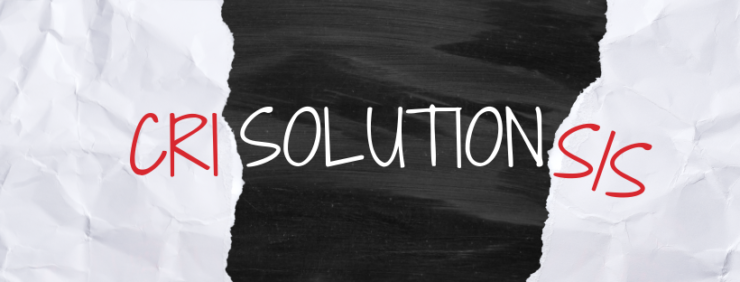Now that commencement season is over, higher education administrators and staff are likely breathing huge sighs of relief. The frenetic last few weeks of the semester are finally done. The summer months have arrived, bringing a welcome break from the day-to-day responsibilities of managing a small city of 18 – 22-year-olds. With the majority of students now gone, the pace becomes more manageable. But there’s still much to do before the quads come to life again in August, including getting a jump start on issues management for the new academic year.

The summer is a perfect time to revisit your crisis communications plan. If your first response was “what’s that?” or “where’s ours?” then it’s (way) past time to put a plan into place. For institutions that have plans, the next few months provide ample time to dust off those plans and put them to the test through tabletop exercises and crisis communications workshops. (But be sure to alert the local community and local police first if you’re doing any live simulations of campus crises that involve audible alarms, sirens or campus police with weapons drawn. The last thing you want is to create a crisis).
As part of your planning, it’s important to review and learn from situations that occurred on your campus and on other campuses. In doing so, you will be more aware of the issues that are likely to occur in the not-so-distant future. All colleges and universities, regardless of size, continue to feel the effects of issues that are plaguing campuses across the country – Title IX, sexual assault, campus violence, injury/accident/death, free speech, discrimination, mental health, substance use disorder, academic program restructuring, and, of course, scandal.
Speaking of scandal, not many people saw the admissions scandal coming – unless you’re one of the 50 parents that allegedly bought their children’s way into college. That’s a perfect example of a type of scenario to consider and plan for. There’s really no excuse not to have thought through how you’d manage communications around a similar situation involving admissions, especially when it comes to donors and beneficiaries or athletes and academic qualifications (or lack thereof). Who gets in and how, along with the admissions process as a whole, will be under the microscope more now than ever before.
At a minimum, higher education administrators and staff should aim to proactively answer the following questions before students arrive back on campus this fall. Chances are, some sort of situation will occur during those first few weeks that will require quick management and timely communication. Failure to plan the institution’s response to any number of issues could lead to internal confusion, public scrutiny, increased legal and reputational risk, and unnecessary disruption to the campus community. Each can easily have an adverse impact on fundraising and recruitment efforts for many years to come.
Working through these questions when the pressure is off will allow you to R.E.A.P. (Review, Evaluate/Assess and Prepare) the benefits of your groundwork when a situation does occur. There’s too much at stake to be unprepared – particularly in today’s world.

Review
- What major issues did we manage on campus last year? How were they communicated to our stakeholders?
- What major issues did the industry experience last year? What can we learn from how our peers handled them?
- What did we do well from a communications perspective? What could we have done better?
- When was the last time we tested our plan with tabletop exercises and social media training drills? How did those exercises go?
- What holes did we identify in our performance? What can we do better?
- What important events (new leadership, capital campaign, building expansion, new academic programs, etc.) or milestones/anniversaries are happening this coming year? How could a crisis impact those events?
Evaluate/Assess
- Do we have a formal crisis communications plan? If so, where is it? Who has access to it? When was it last updated? (If the answer is “no” or “I don’t know,” it’s time to get to work!)
- Does our crisis plan include internal protocols for managing internal and external inquiries? Have those protocols been communicated to our internal team?
- Do we have a defined crisis communications team? Is our general counsel and/or outside legal counsel part of that team?
- Do all the members of our team know what their roles are?
- Do we have a uniform process for gathering and reviewing available information? Who is the point person?
- Does our insurance policy cover crisis or reputation management?
- Who are our primary stakeholders? How do we typically communicate with those stakeholders?
- Have we identified the appropriate spokespeople for various issues?
- Have we drafted core messages and templates to help expedite development of media statements, talking points and scripts, FAQs, community letters, web content, and social media posts? If yes, when were those messages and templates last updated? Who knows how to load and send messages to our stakeholders?
- Who manages and has access to our social media platforms? Do we have protocols in place for managing social media issues?
- Who manages and has access to our website?
Prepare
- When is the next time we will test our plan with tabletop exercises? Who will be involved? What crises will be part of those trainings?
- What supportive messages can/need to be communicated to our campus community throughout the year to reinforce our positions on national issues before they occur on our campus?
- Are we expecting any staff transitions that would impact the roles and responsibilities in the crisis plan? If so, we do need to schedule “refresher” sessions?
- When was the last time our spokespeople were media trained? Is it time for a review session?
- How is our relationship with local media? Are there any new reporters or editors who we need to proactively meet with before the academic year begins?
- Does our public safety team have a working relationship law enforcement to ensure a coordinated response when an incident occurs? Does that relationship need to be improved?

After you’ve answered these questions (and more), it’s time to start over again. Crisis communications planning is never a static exercise – it is a dynamic process that requires constant adaptation and refinement to ensure that your institution is as prepared as possible to manage communications when a critical issue or event takes center stage.















